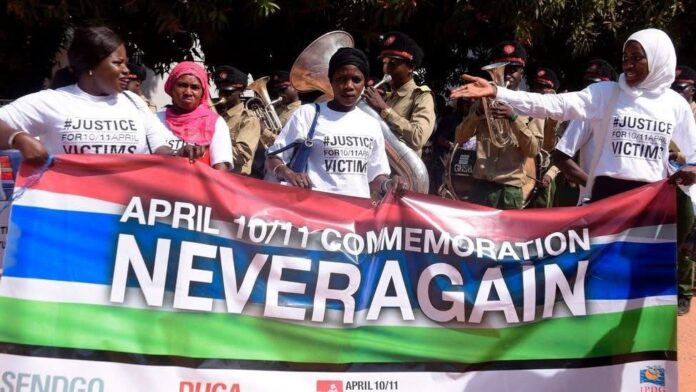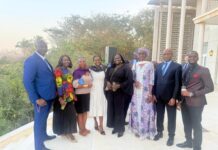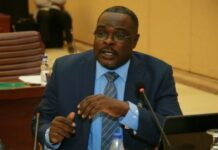On the 25th anniversary of the tragic April 10-11 massacre, the Edward Francis Small Center for Rights and Justice ( EFSCRJ) has issued a powerful call for justice, accountability, and socioeconomic support for the victims of one of the darkest chapters in Gambian history. The organization marked the somber milestone with a public statement reflecting on the 2000 incident, when 14 students, a Red Cross volunteer, a journalist, and a baby were killed, and many others injured, by security forces under the command of then-Dictator Yaya Jammeh and Vice President Isatou Njie Saidy.
The massacre, which occurred a quarter-century ago, saw the nation’s security forces open fire on unarmed protesters, leaving a trail of death, trauma and shattered livelihoods. Despite the passage of 25 years, EFSCRJ expressed profound grief over the lack of meaningful justice, reparations, and closure for the victims and their families.
The group acknowledged the recommendations of the Truth, Reconciliation, and Reparations Commission (TRRC) outlined in its Final Report, which the Gambia Government accepted in its White Paper. These include training security forces in crowd control, declaring April 10 and 11 as school holidays, establishing rehabilitation centers for survivors, and prosecuting key figures like Jammeh and Saidy for their roles in the bloodshed. The TRRC also called for efforts to identify and prosecute Badgie, a PIU officer accused of torture.
However, EFSCRJ voiced frustration over the government’s slow progress in implementing these measures. “While the Special Tribunal is in the process of creation, the Government is not making the necessary efforts to implement the rest of the recommendations, most of which bear no costs,” the statement read. The group pointed to the ongoing excessive use of force by security forces during public assemblies and the absence of official recognition of April 10 and 11 as evidence of governmental neglect.
In a list of demands, EFSCRJ urged President Adama Barrow’s administration and the National Assembly to act swiftly. Key requests include declaring April 10 and 11 as national school holidays starting immediately, erecting monuments in every region to honor the victims, and holding annual commemorative events. The group also called for the integration of human rights and democracy education into school curricula, free medical and educational support for survivors, and financial assistance for victims for life.
Further, EFSCRJ demanded the expedited establishment of the Special Tribunal to prosecute Jammeh, Saidy, and others implicated in the massacre, as well as the removal of all security officers and officials involved from public office. The organization also proposed that the events of April 10 and 11 be officially declared crimes against humanity due to the “wanton killing, torture, and sexual violence” inflicted on victims.
“We remind the Gambia Government led by Pres. Adama Barrow that they have a moral and legal duty to ensure justice and accountability,” the statement concluded. “Failure of this duty tantamount to a betrayal that severely undermines the Never Again mantra.”






